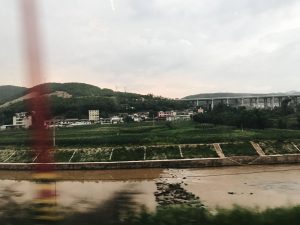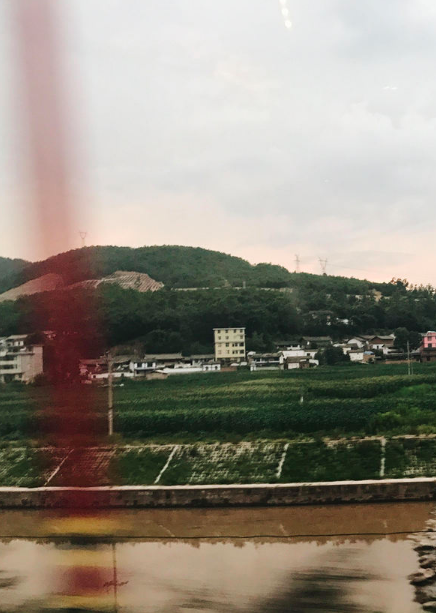By PATRICIA LIU

Yunnan Province, China
Paper is thin. In the beginning, still billows in the wind, still petal-like, still grounded in this world
of living. The incense is the only material that translates the viscera to mist. Early, the fog has not yet
lifted, and we move through the white drip as if through total darkness. Fish lost in the deep under-
water. It is easy for water to find home in our bodies. How wonderful it is to think my father’s
dead father a translation of our living selves, the water in-between my cells, the same water of
ghosts. Of women and Buddha, of lotus flower and palace, of lion. See the shine of fire, even
now. See the smoke, encapsulated by the fog. My father tells stories of the state’s inexorable beckoning,
the brothers, and the sisters, too, sent to the countryside. What they remember most is the truck
and the dust, the broad shoulders of horse, that first night and its stars, the mass exodus of dragonflies
following the monsoons—but no, exodus is uniquely a human endeavor. My father cannot bring
himself to anger; he knows it is shame that is the ugliest language. Somewhere, I have lost my place
in the life-wheel, and the only words I know in Chinese are our names. Jiayu is rain. Jialei is rosebud.
Only years later do I learn that Jiayu means jade. Only years later do I long for pure, unadulterated
fortune over the ritual of early rain. Somehow, turn face to sky. Here. In memory, to burn is to revere.
Patricia Liu is originally from Oklahoma and currently a senior at Harvard College, studying English and East Asian Studies. She is interested in how poetry can be used to foster deeper connections among people and their environment. Her poetry appears or is forthcoming in POETRY, The Cincinnati Review, and The Colorado Review.



